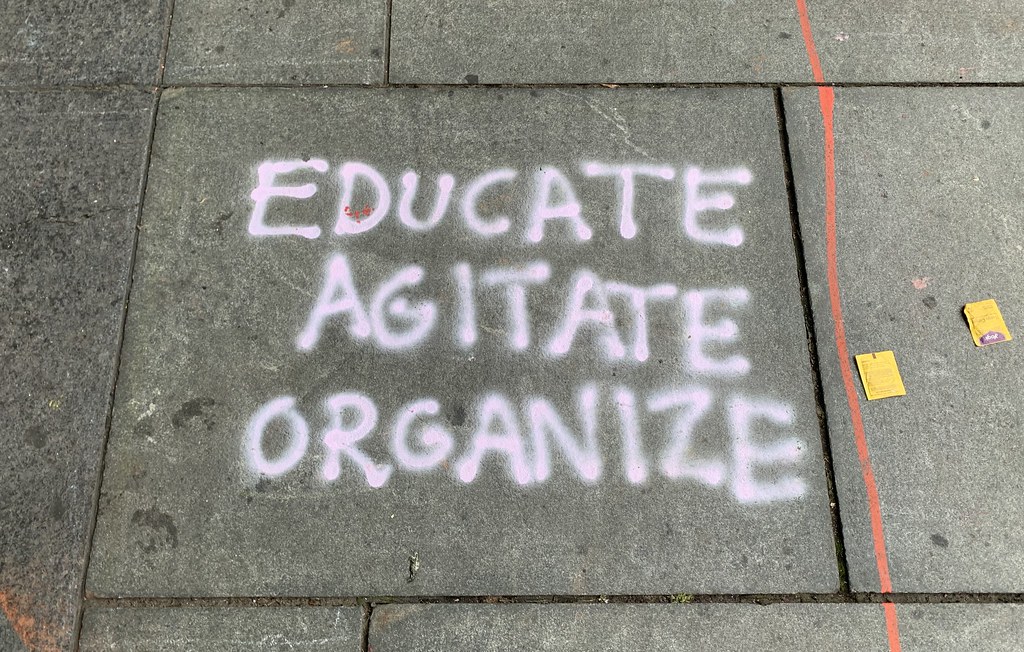Lola Olufemi & Imani Robinson On Curating ‘Abolition: In Defence of Translation’
By Something CuratedToday Somerset House Studios launches Grounding Practice, a new year round programme of workshops, presentations and conversations as a resource shaped by and for creative practitioners and critical thinkers. With contributors to the programme including director and moving image artist Akinola Davies Jr., feminist writer Lola Olufemi, curator Imani Robinson, and performance artist Florence Peake, Grounding Practice builds on previous work aimed specifically at supporting artistic practice, and is intended to convene artists, academics, activists and audiences to share methodologies, tools, and experiences for creating and learning. The first to take the lead, Lola Olufemi and Imani Robinson have programmed the series Abolition: In Defence of Translation, occurring both on site and online this September. To kick things off, this evening, 9 September from 6.45pm, an online panel including Zoe Samudzi, Jun Pang and SA Smythe, will explore the concept of abolition. To learn more about the new series, Something Curated spoke with Olufemi and Robinson.

Something Curated: What can we expect from Abolition: In Defence of Translation?
Lola Olufemi + Imani Robinson: Abolition: In Defence of Translation poses a number of questions: how might we think of the applicability of resistance against landscapes of entrapment birthed by racial capitalism in our everyday lives no matter who we are and where we are situated? What is it about abolition that makes it such a sticky concept, how do we escape the trap of legibility and the subsequent unspecified parcelling out of this concept and practice across the world? What would it mean if we refused to assume that carcerality looks and functions the same in every context? What about the prison in our local area and community, if we focused our attention there – what histories, echoes and repetitive cycles of extraction and exploitation might be revealed? What can the local tell us about the global? Audiences can expect a space to watch others think aloud about these questions and to engage with them through performance and workshops. We’re opening up a space to invite audiences to think through critical questions related to abolition as a theory and practice and to contend with the consequences of the carceral violence inherent in their own landscapes.
SC: Can you expand on some of the key topics you’re intending to broach through the programme?
LO + IR: The programme ranges – from performances concerned with thinking through labour sweat and criminality, to a facilitated anti-raids workshop as well as interventions from abolitionists working in a number of geographic locations. We were interested in exploring carcerality within a specific locality (Holloway Prison) but also the utility of abolition as a practice across borders, say in Hong Kong for example. Key topics include ideas about the expansiveness offered by Black geographies, the foreclosure presented by carcerality, the problem of innocence and the category of “the criminal” and what exactly the translation of a concept can or cannot offer us as well as how that process of translation is frustrated by the border.

SC: What is the thinking behind the selection of speakers and collaborators you have brought on board?
LO + IR: We were interested in creating space for conversations between different kinds of practitioners but we wanted the programme to be rooted in Ruth Wilson Gilmore’s idea of the antagonistic contradictions that mark carceral landscapes. We thought carefully about how different elements of the programme could reflect our desire to ensure that abolition does not become an abstraction. So this meant, working with collectives as well as individuals, working with artists that might add a different dimension to the questions under inspection. It also meant ensuring that there was a practical element embedded in the programme, that those engaging it would leave ready to disrupt carcerality in their own contexts.
SC: And what do you hope to achieve with the events?
LO + IR: We recognise that the act of curation is not the same as the urgent material transformation needed to address the problem of carcerality. We are opening up a space for those who might not otherwise have engaged with this concept and all it demands of us to think alongside others and hopefully gain some practical skills that can be shared. We want to think through the histories of monuments to carcerality, to ask why they linger, what makes them violent, to clarify exactly what needs to be done to address this problem. This programme is an invitation into critical thinking, it is not a substitute for the work that must be done and we know this.
Feature image: Ebun Sodipo. Courtesy the artist and Somerset House Studios